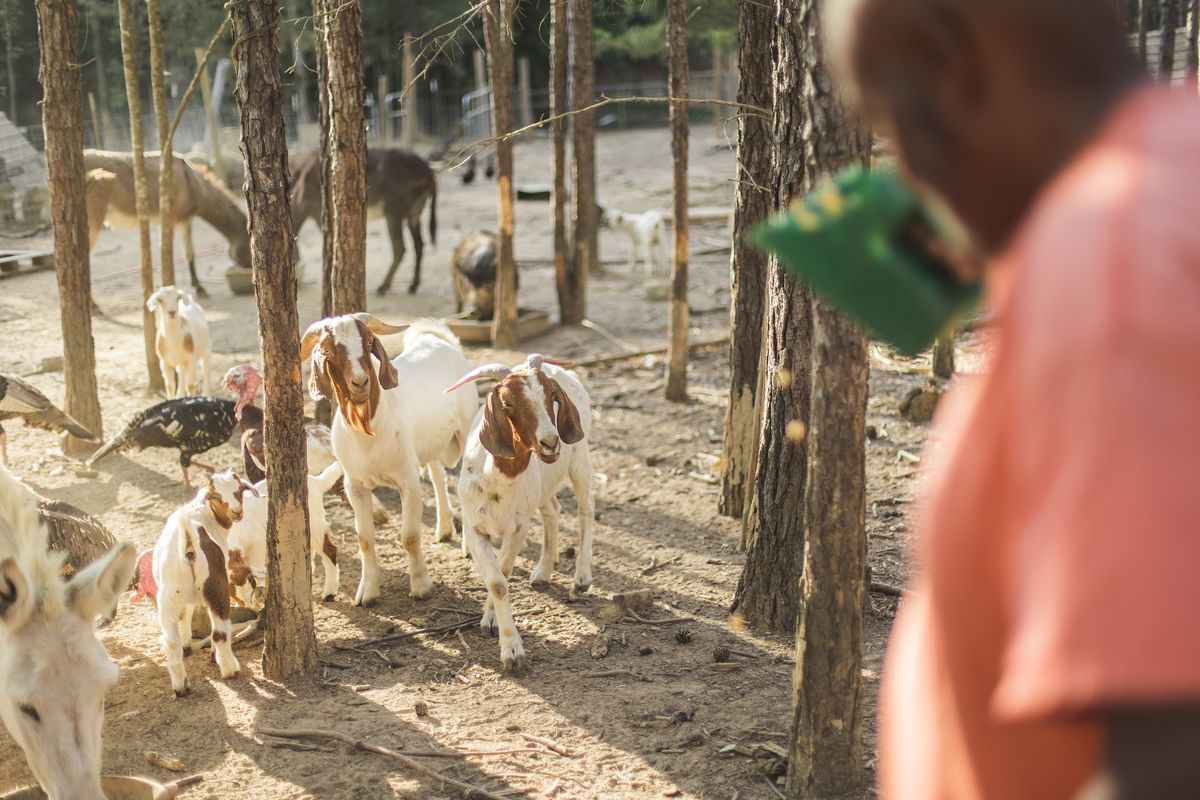
Farm of the Brave
Farm Again helps veterans reconnect with the land
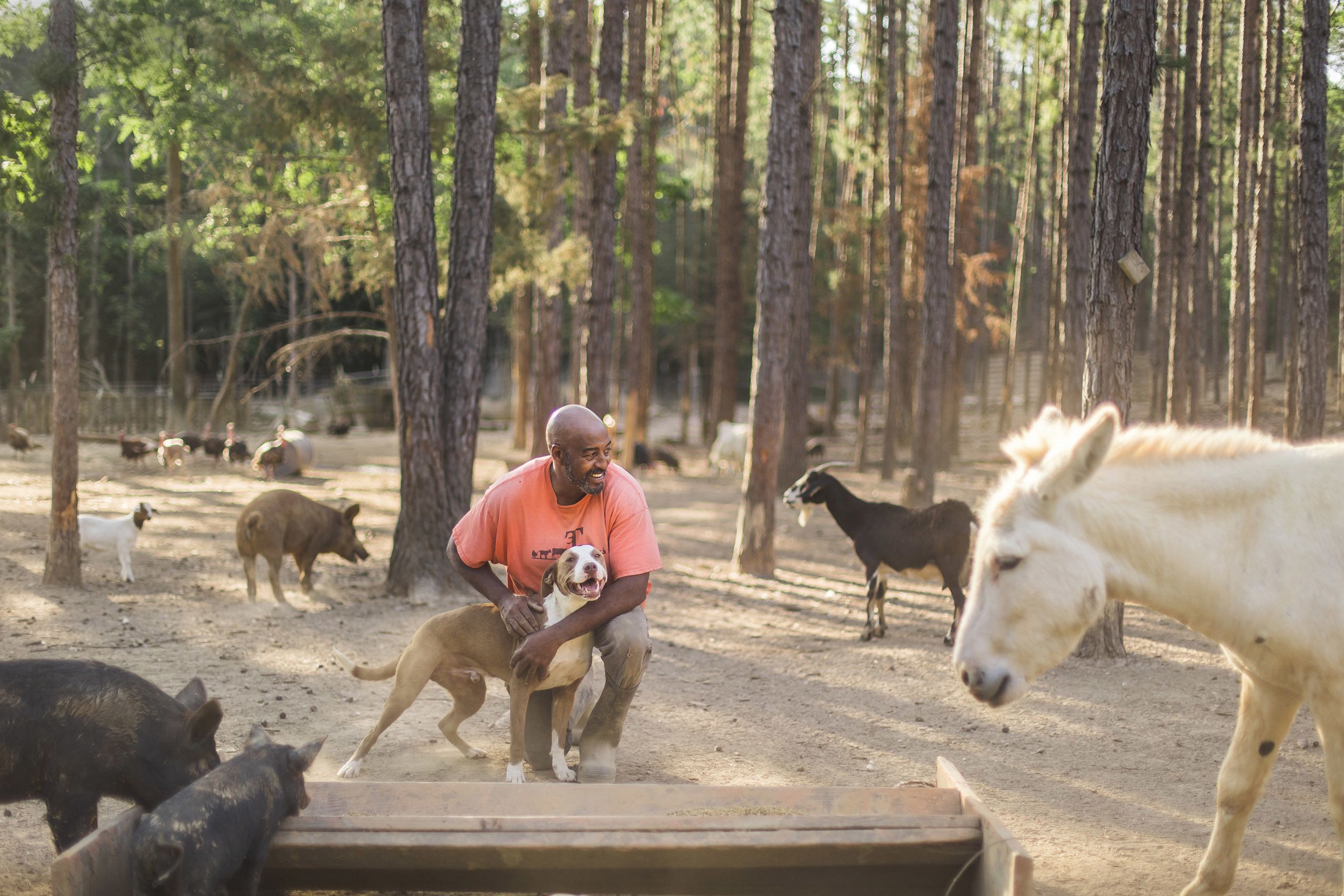
For many veterans, returning to civilian life is a stark shift from their fast-paced and service-based military life. When you combine this with the more than 4.7 million veterans who have service-based disabilities, the challenges of re-entry compound. The University of Georgia is working to assist Georgia’s veterans with this transition through its dynamic farming program, Farm Again.
“The program does more than you expect it to because it provides more than just equipment,” said Iteago Felton, owner of 3T Farms and Farm Again participant whose military career spans 32 years of Army service. “It gives us the knowledge, a new community of farmers and veterans, and a sense of pride because you know you are of service to your community again.”
Farm Again offers classes covering a wide range of topics including business planning and farming 101, which breaks down the basics for those who are new to the world of agriculture. Kyle Haney, AgrAbility and Farm Again rural health manager with UGA’s Institute on Human Development and Disability, said the program highlights the importance of keeping farmers with challenges in farming and helping bring new people into agriculture.
“Agriculture is our No. 1 industry and everyone benefits from it every single day. We must ensure that we provide our farmers with the support and resources that they need to continue working hard day in and day out," Haney said. "Farming is different from all other industries because it is not just a job, it is the farmer's identity. We strive to make sure they can continue to farm with a health condition or after an injury.”
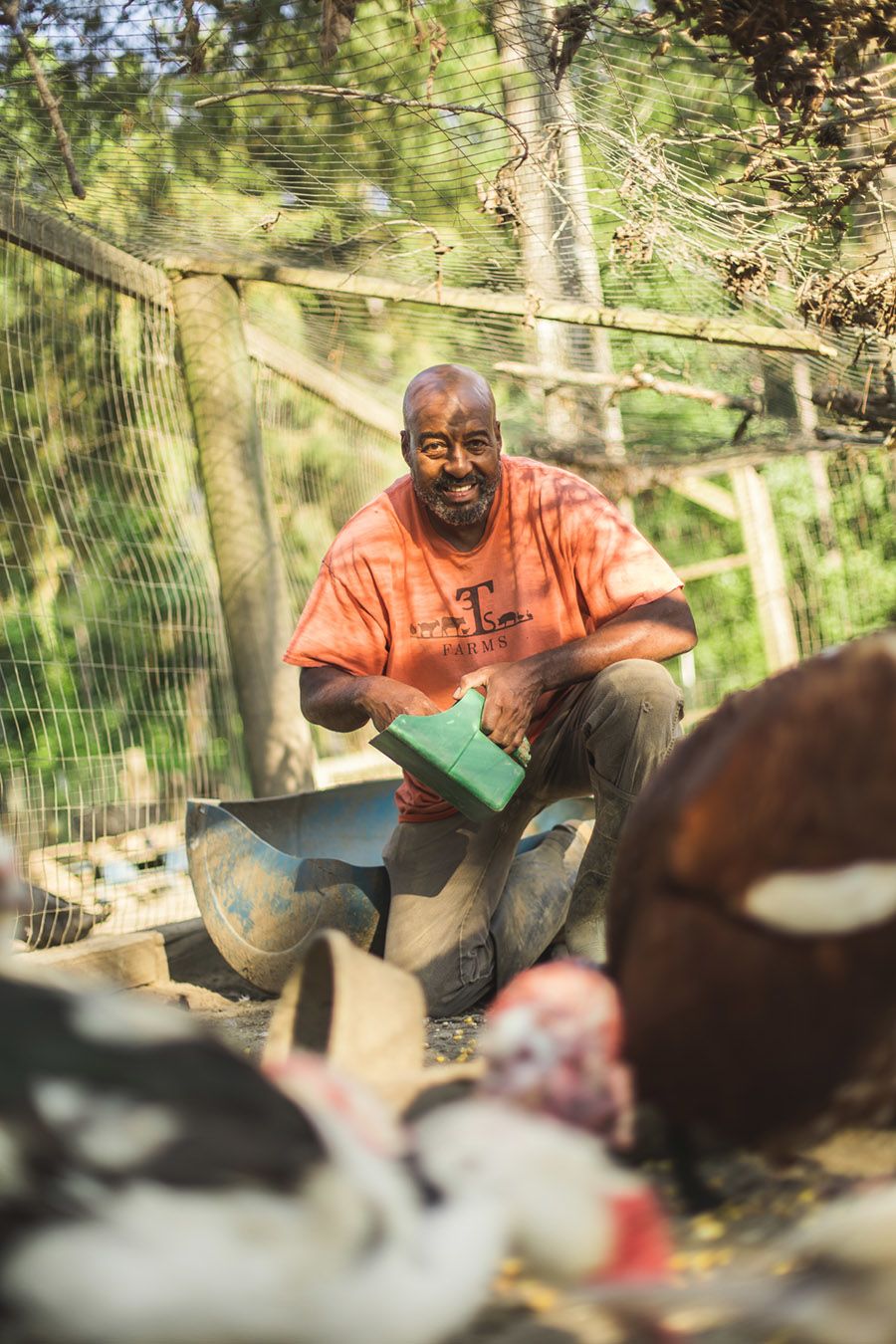
Iteago Felton feeds fowl at his family's farm, 3T Farms in Lincolnton, Georgia.
Iteago Felton feeds fowl at his family's farm, 3T Farms in Lincolnton, Georgia.
Felton and Haney both believe military life prepares veterans for a life in agriculture. The long hours and laborious work, the need for adaptability and the ability to be of service to the world are just a few of the shared characteristics of military service and farming. As an added benefit, farming is a good fit for some veterans because it has the power to heal.
For farmers like Felton who experience PTSD and anxiety, farming can serve to heal by providing a way of reconnecting with nature. “On my farm, it can be just me and the livestock. I can find peace just listening to the calmness of nature around me or by just seeing the fruits of my labor, day after day,” said Felton.
Since 2019, Felton has been working with Farm Again to further his new life in the agricultural business. With a bustling 25-acre livestock farm full of pigs, chickens, goats and turkeys in Lincolnton, Georgia, he says the knowledge he has gained from the program is priceless.
“It’s enabled me to get to levels that it probably would have taken me 10 years to get to alone,” he said.
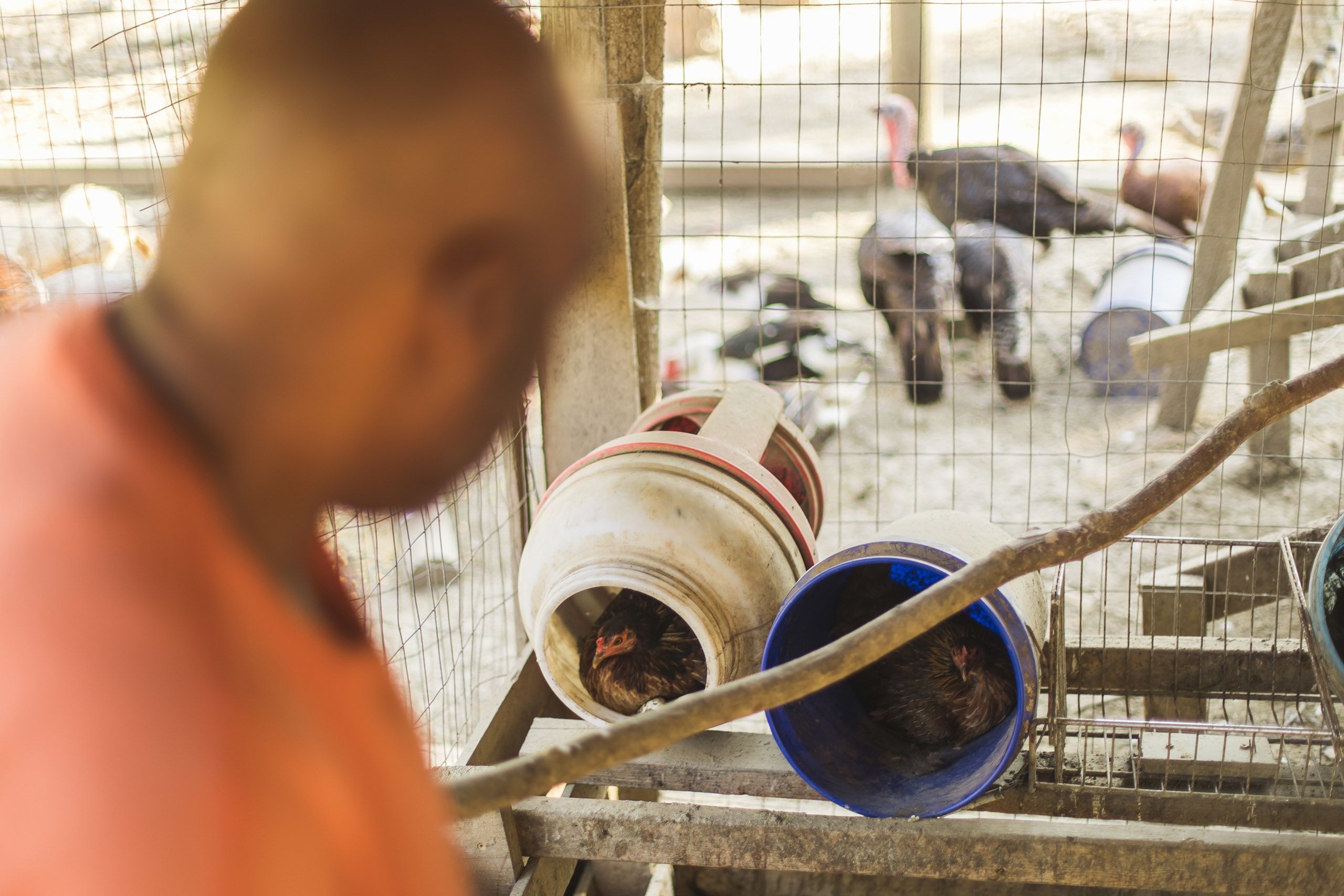
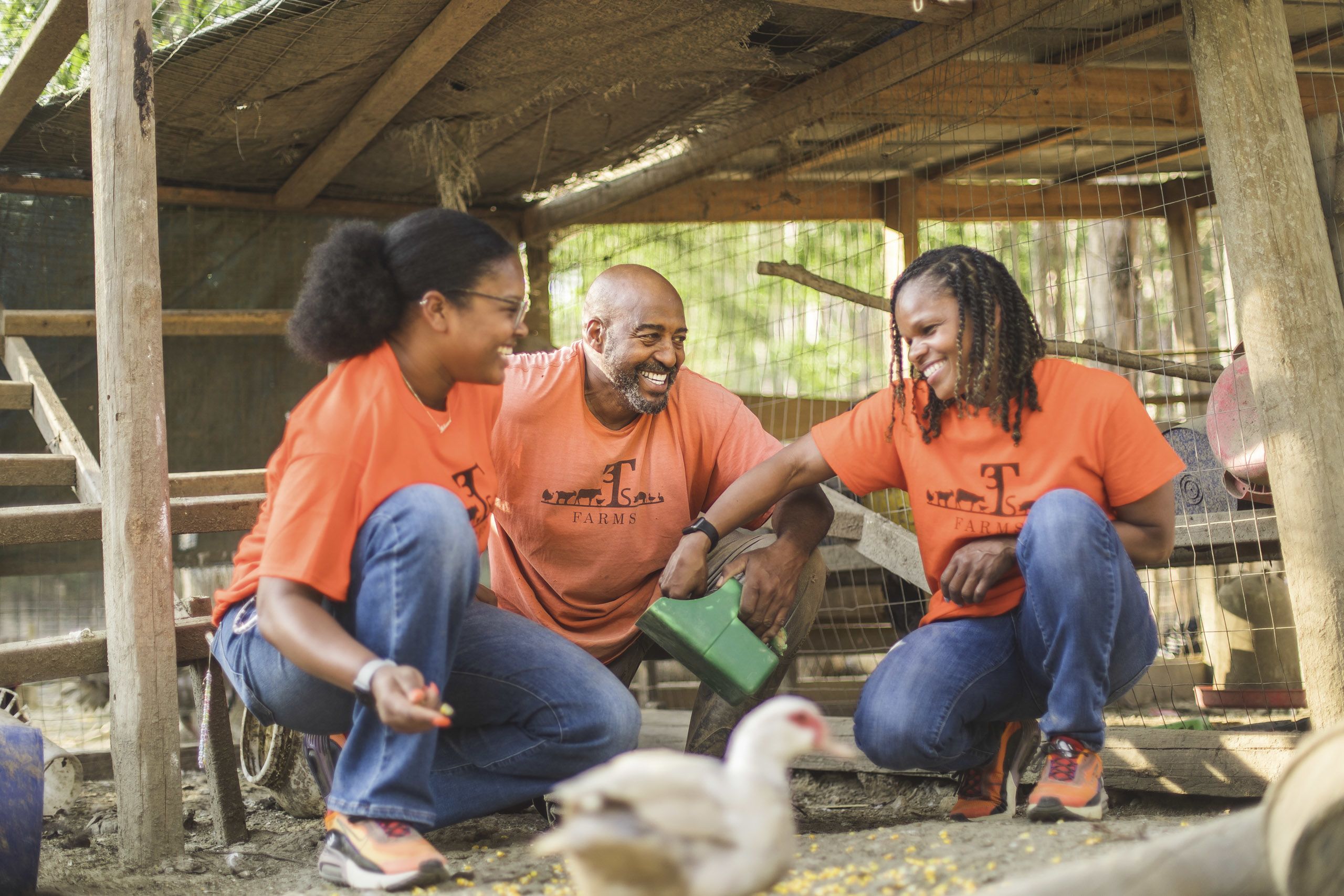
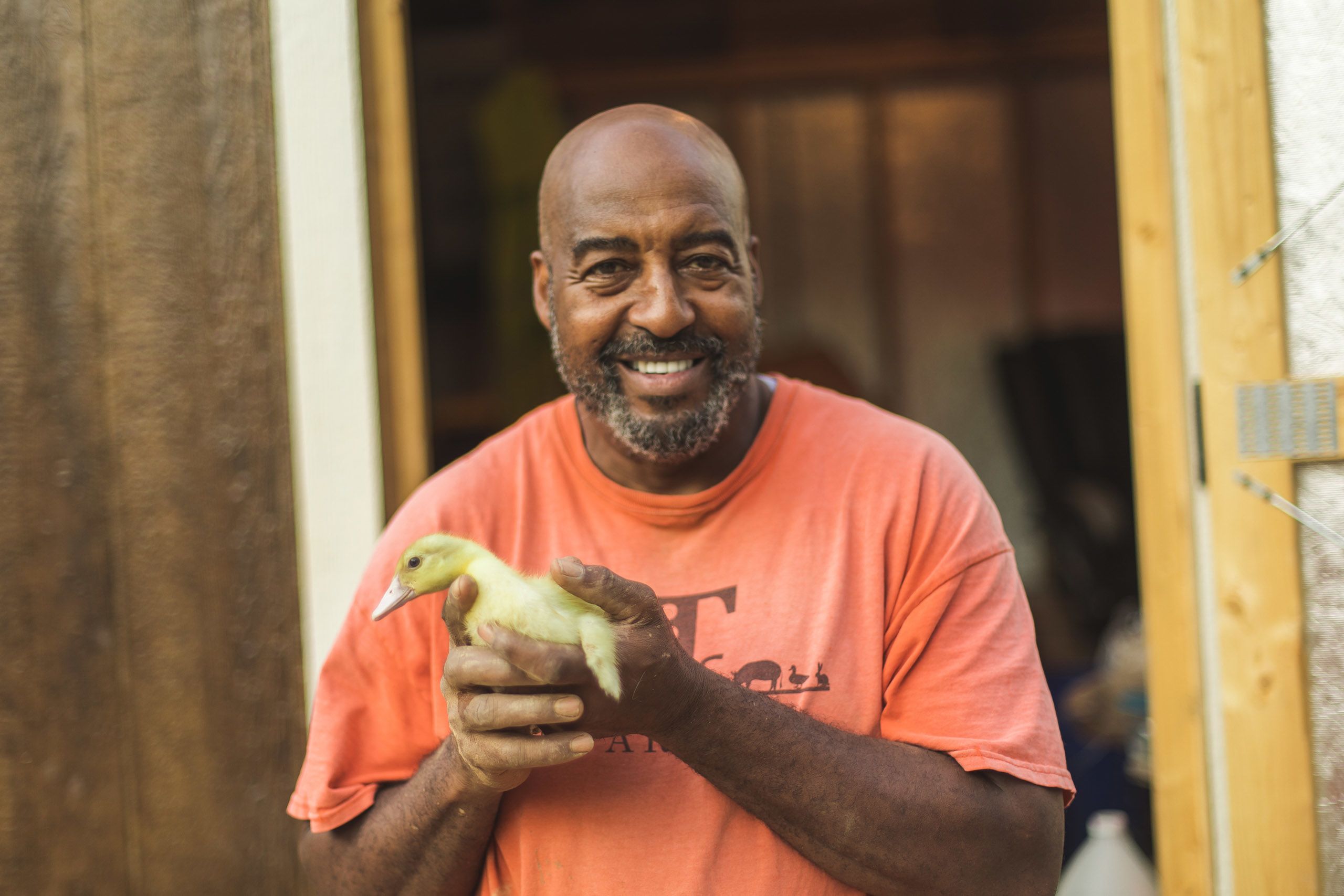
“On my farm, it can be just me and the livestock. I can find peace just listening to the calmness of nature around me or by just seeing the fruits of my labor, day after day.”
Ultimately, while the program does not directly provide funding to farmers, it offers the necessary insights that enable lifelong farmers, veterans and those entering the industry for the first time to apply for critical grants while offering innovative ways to learn about the industry and what it truly takes to sustain a career as a producer.
“We are offering veterans and these farmers a sense of accomplishment and well-being and the ability to still do field work,” said Glen Rains, UGA College of Agricultural and Environmental Sciences professor and Georgia AgrAbility and Farm Again co-director. “When you get to see the results of your hard work, it just means so much.”
Exemplified by the nearly 70 veterans and more than 1,600 farm families who have benefited from Farm Again and Georgia’s AgrAbility program, innovation and education have made farming more accessible to all.
“One of the most rewarding parts of our work is being able to meet with farmers in the hospital and give them the hope that we can get them back to farming after an injury or health condition, then being there with them to see the smile on their face when they use the lift that puts them back in the tractor,” Haney concluded.
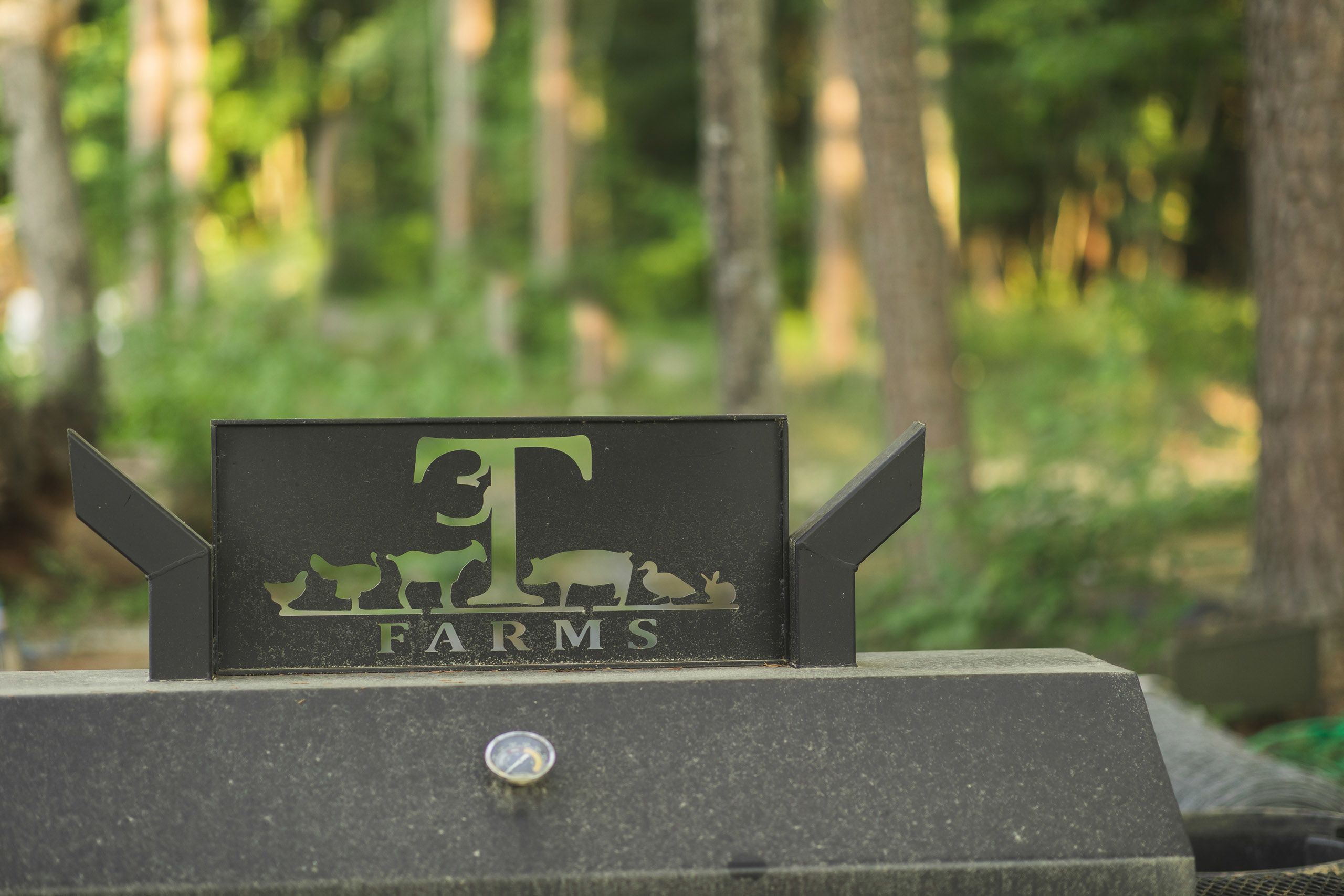
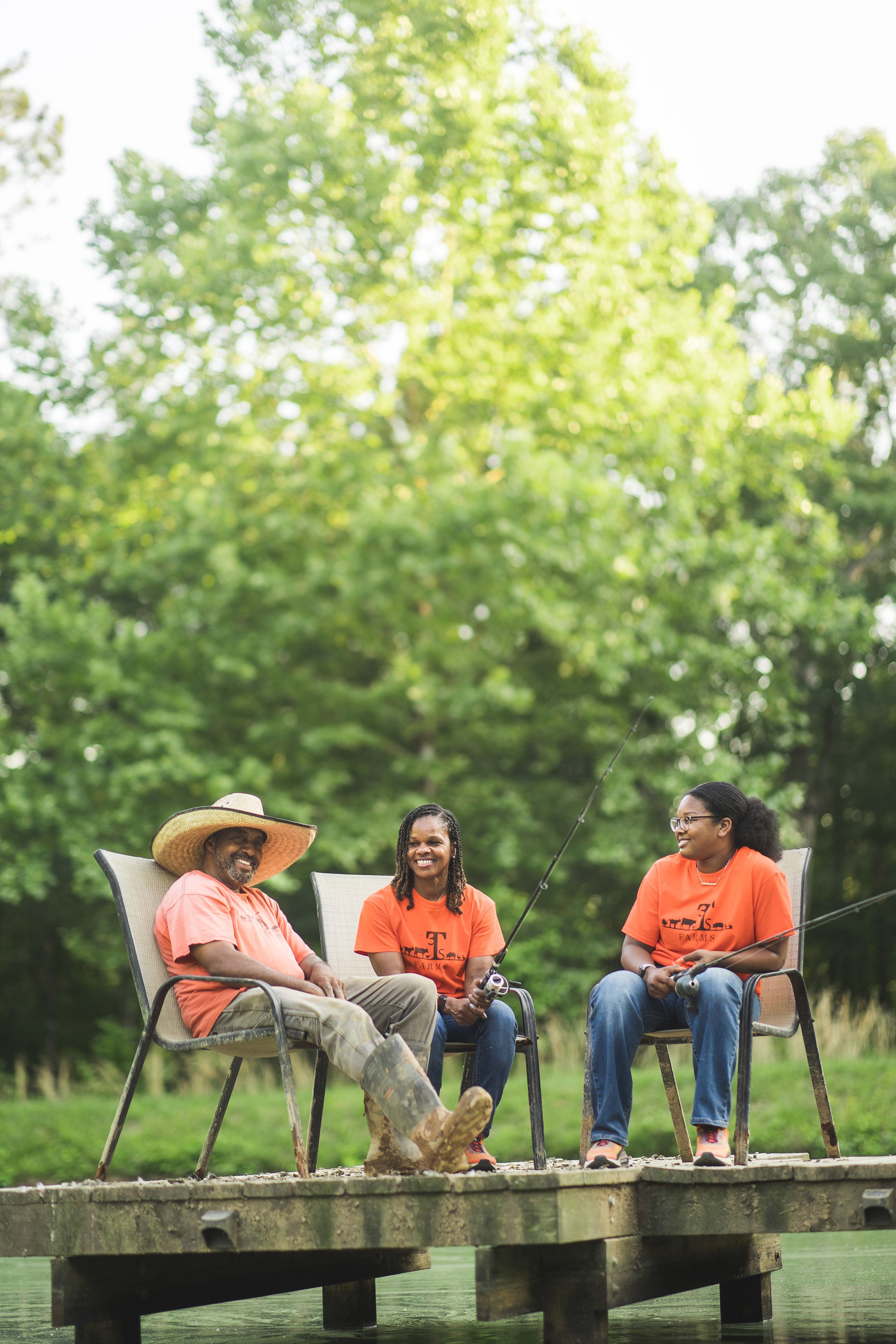
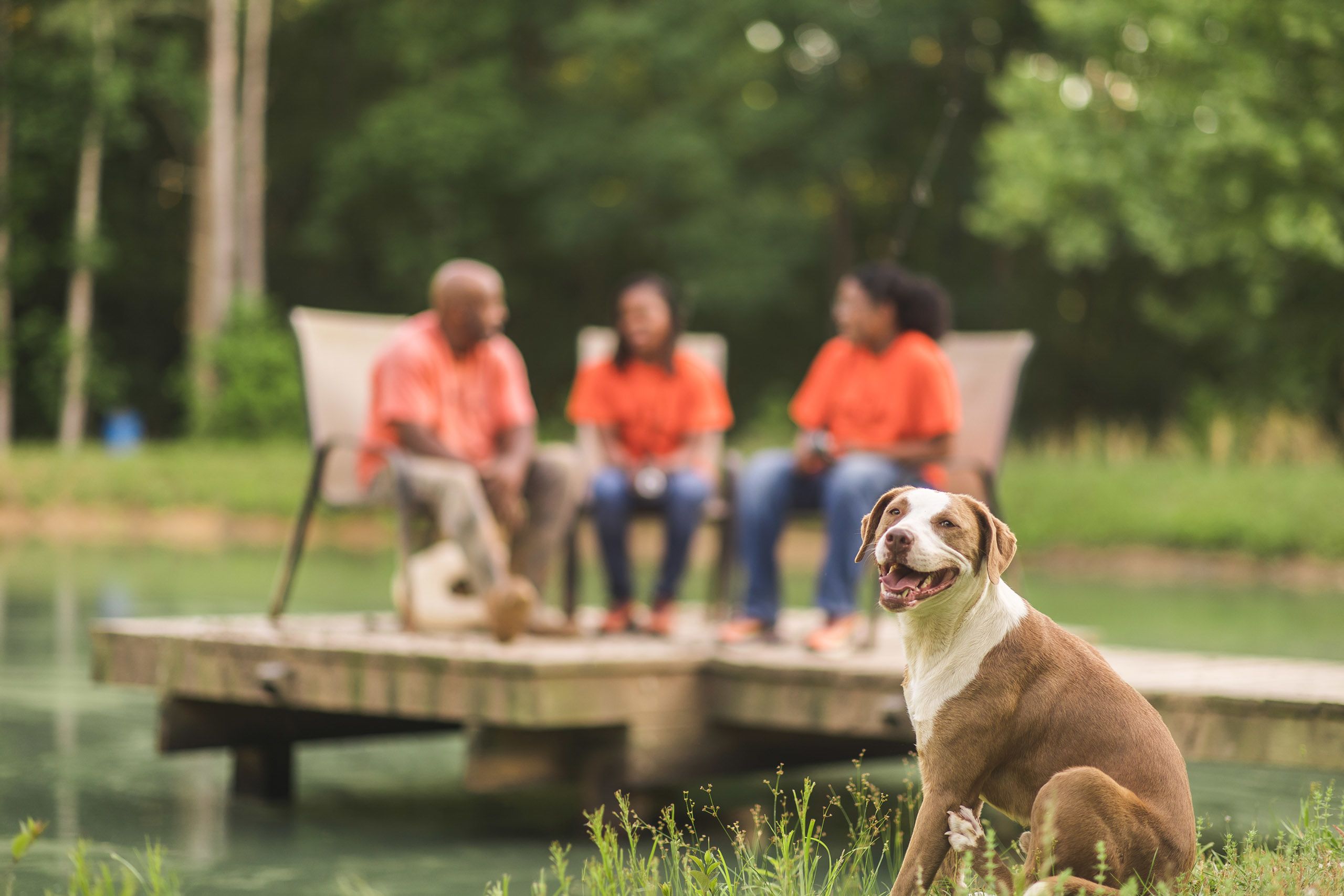
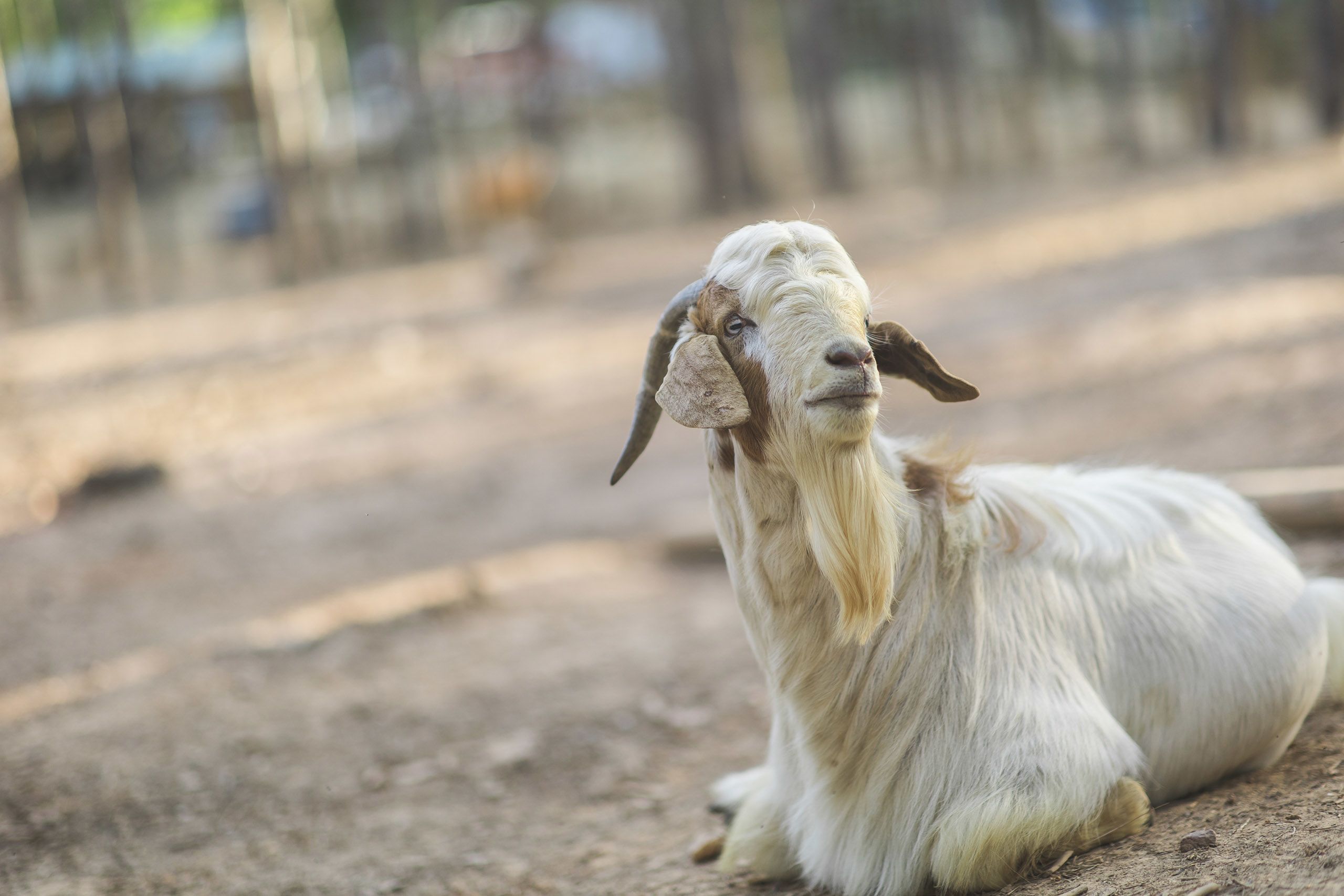
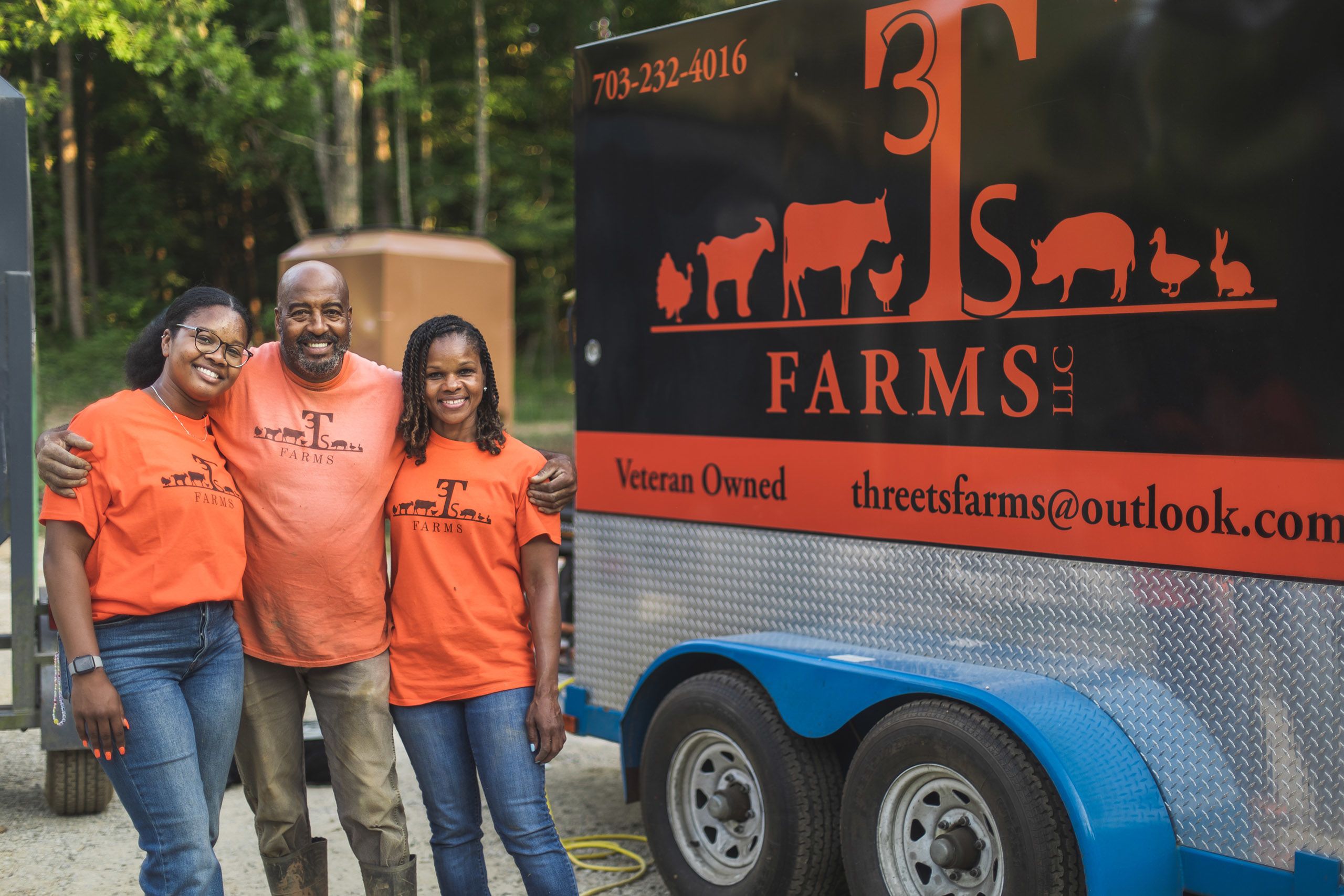
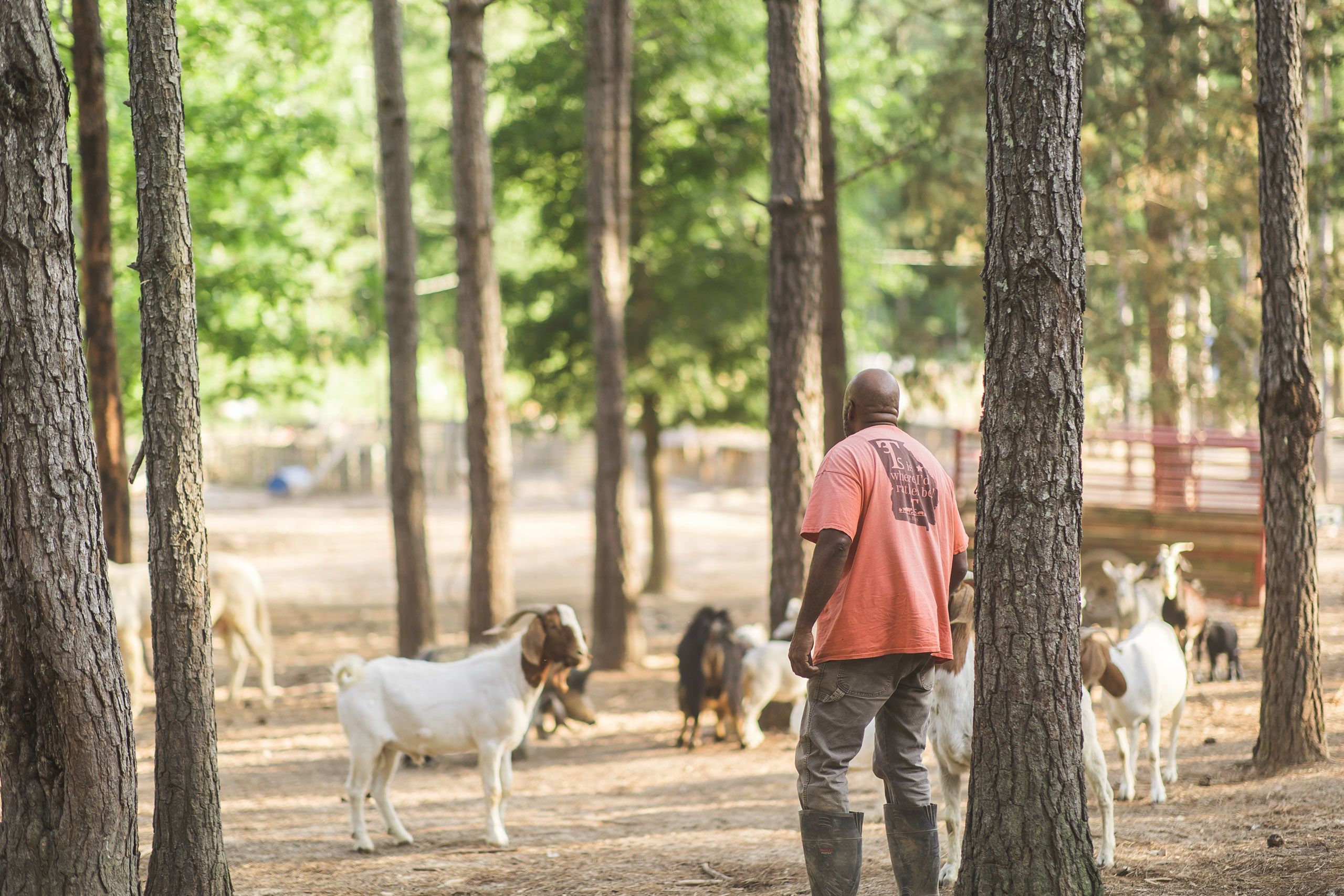
Did you enjoy this story?
Check out recent issues of the Almanac for more great stories like this one.
News media may republish this story. A text version and art are available for download.
